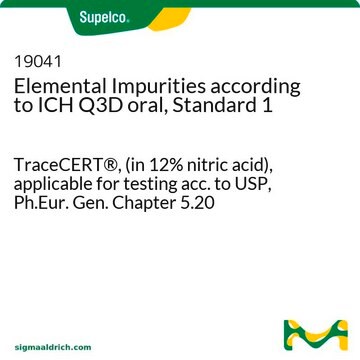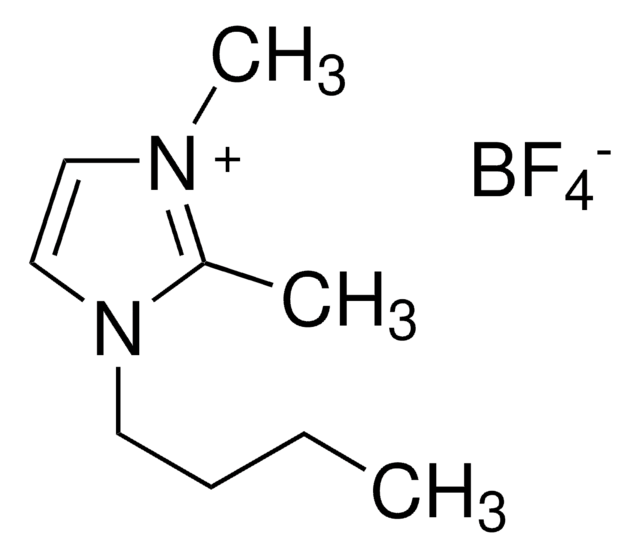91508
1-Butyl-3-methylimidazolium tetrafluoroborate
≥97.0% (HPLC)
Synonym(s):
BMIMBF4
About This Item
Recommended Products
Quality Level
Assay
≥97.0% (HPLC)
form
liquid
density
1.21 g/mL at 20 °C (lit.)
SMILES string
F[B-](F)(F)F.CCCCn1cc[n+](C)c1
InChI
1S/C8H15N2.BF4/c1-3-4-5-10-7-6-9(2)8-10;2-1(3,4)5/h6-8H,3-5H2,1-2H3;/q+1;-1
InChI key
LSBXQLQATZTAPE-UHFFFAOYSA-N
Looking for similar products? Visit Product Comparison Guide
Application
Other Notes
Signal Word
Danger
Hazard Statements
Precautionary Statements
Hazard Classifications
Acute Tox. 3 Oral - Aquatic Chronic 2 - Eye Irrit. 2 - Skin Irrit. 2
Storage Class Code
6.1C - Combustible acute toxic Cat.3 / toxic compounds or compounds which causing chronic effects
WGK
WGK 3
Flash Point(F)
550.4 °F
Flash Point(C)
288 °C
Personal Protective Equipment
Choose from one of the most recent versions:
Already Own This Product?
Find documentation for the products that you have recently purchased in the Document Library.
Customers Also Viewed
Our team of scientists has experience in all areas of research including Life Science, Material Science, Chemical Synthesis, Chromatography, Analytical and many others.
Contact Technical Service












